X
-
Interview
published: 18 /
5 /
2011
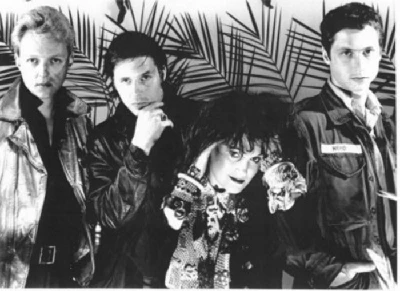
The front woman with seminal Los Angeles-based punks X, Exene Cervenka talks to Lisa Torem about her fight against poor health, her group's latest reformation and its continued sense of social justice
Article
Exene Cervenka, who met John Doe at a Los Angeles poetry event, became chief vocalist and, along with the bassist/singer-songwriter; guitarist Billy Zoom and drummer D.J. Bonebrake, co-songwriter for the Los-Angeles punk band X, which formed in 1977.
X hoped to recreate the primal fury that they felt the rock genre had cast aside, in favour of more commercial appeal. Their debut album, ‘Los Angeles’ produced by Doors former keyboardist Ray Manzarek, in 1980, borrowed from rockabilly, but primarily featured their gutsy songwriting, innovative harmonies and poetry-influenced lyrics.
Their follow-up, in 1981, ‘Wild Gift’, was lauded by ‘Rolling Stone’ and other popular magazines as ‘Record of the Year’. In 1982 ‘Under the Big, Black Sun’ added power chords, but, in the following year, ‘More Fun in the New World,’ lost some loyal fans due to what many considered a more commercial sound.
Although the group had produced six studio records by 1988, they went their separate ways that year. Exene fronted the more folk-based Auntie Christ and The Original Sinners, resumed her poetry career and created art exhibitions. She also sang in the folk-country ensemble, the Knitters, in which Dave Alvin played guitar and Johnny Red Bartel played bass.
Doe became an actor and formed bands that gravitated around American roots music. To many fans, however, X still retain the title (according to comments on their website) of “Living Gods of Punk.”
X have since reformed three times, most recently in 2008, and are currently touring the west coast with the original line-up.
The highly introspective Exene Cervenka, who has survived poor health, and an ever-changing industry has, nevertheless, retained a strong sense of social justice and an iron-clad commitment to the visual and sonic arts.
PB: Exene, X worked with Ray Manzarek from the Doors on four albums.
EC: Ray is a great place to start because he really was a fifth member at one point. I mean, he wasn’t a kid. He was important to us as a guide. When we decided to work with him, it was a scandal.
PB: Why?
EC: Because he was a hippie. That was 1980 about ten years after the Doors, which was ridiculously short. But we loved Ray. Everybody did, but I’ll just speak for myself. He was generous, smart, talented. The Doors were my favourite band. So, for me, it was shockingly amazing.
When I first moved to Venice in Los Angeles, I used to walk around, in the fog, all by myself, because nobody was there then. It was like a ghetto. I would just think that Jim Morrison and the Doors were here.
I wasn’t hero worshipping. I was just wondering, how did I end up in this magical land? And, then I began working with Ray, so it was crazy for me.
The hippie thing and the punk thing weren’t supposed to mix. There were a lot of bands that I didn’t like that were hippies, because of their attitudes, but I loved the Doors. When we started out, Jim Morrison, Janis Joplin and Jimi Hendrix had died horribly, suddenly, so there was post-traumatic stress syndrome going on with the hippies, plus their days were over.
PB: They couldn’t accept that.
EC: They had one thing left…the radio. On the radio, classic rock was born. “We’re going to keep playing this music until forever and we don’t care what comes next”. And they did, and none of the punk bands could get played. They never thought of listening to a Blondie song or the Ramones.
So, that was an issue there and, even with Ray producing us, it didn’t help. They were steadfast against anything punk. Anything punk was the enemy. It was a war and we lost.
Anyway, Ray didn’t care about anything but setting us loose in the studio. “Okay, guys, stop drinking and doing drugs, and sing a song now.” He was really good at letting us be ourselves and yet making us work. I’d never been in a studio before.
PB: You loved poetry. Weren’t you influenced by Bukowski?
EC: I read everything he wrote, but he was not an influence on my writing. I’m a Bukowski reader. I’ve read all of his poetry, all of his books. But, who I really loved was John Fante, the poet that Bukowski loved.
John Doe and I went down to the L.A. county library and checked into John Fante’s books. I read the same actual book that Charles Bukowski read, ‘Ask the Dust.’
I don’t like Charles Bukowski’s poety, I like his fiction. I don’t like the way his poems end. I never have.
Ray was super literate and so were we. He loved Los Angeles, writing, movies. We had an instant language. There were no barriers of culture.
PB: You have worked with Lydia Lunch and Wanda Coleman. Isn’t poetry a solitary pursuit?
EC: Those were women. You can collaborate with women, doing poetry.
PB: But, not men?
EC: Or, you can collaborate with men making a record when they come in and do their parts. But, other than that, they tend to take over. That’s an understatement.
Right now, I’m doing psychology, philosophy mixed with agnosticism, Carl Jung mixed with fucking scriptures to try to figure out why we moved away from a partnership model in the first place and moved into this patriarchal society, and how to fucking fix it before the world ends and everyone dies.
Everyone in the world is miserable. The rich people are miserable because they don’t think they have enough yet. The poor people are beyond misery. It’s spreading. There are revolutions, poverty. There’s bankruptcy, there’s disasters, towns being flooded to save other towns. It’s a nightmare out there. It shouldn’t be that way. We’re not here to be miserable. No life form is here to be miserable.
PB: Raising social consciousness has been important to X. Yet, does it ever get daunting?
EC: I had an experience that changed my life, and it took a long time for it to happen, but I was always on the same path. When you’re young, you’re super idealistic and powerful and strong, and you’ve got to give into that, no matter how reckless or wrong you can be, or misinformed or not educated enough.
When you know something’s wrong, you’d better get out there and do something about it, when you’re young, because in five years you’re not going to be able to.
You’re going to be in college or in grad school. You’re going to have kids or you’re going to be in a band and you’re not going to fucking care what’s happening in the fucking world when you’re twenty-five.
As soon as Clinton got to be president, the young people abdicated their responsibilities and felt like, now everything’s going to be okay, plus I’ve got a job, plus I’ve got a computer, plus I’m young. I live somewhere hip and Clinton’s president. Man, we’re set.
Bush came and that was like a blow that no one could survive, and then and now they’re scrambling around trying to figure out what the fuck to do. They shouldn’t have done that in the first place. But, there’s a whole generation that’s missed their responsibilities.
PB: You have discussed how MADD (Mother’s Against Drunk Driving) facilitated raising the drinking age from 18-21. You lost a huge chuck of your audience – why couldn’t kids just get designated as non-drinkers, but still attend the performances?
EC: They took the 18-21 crowds out of circulation for bars, clubs, gigs. But, big rock concerts, they could still go there. But, no, not us. Not a club.
As soon as it happened, it hit us and it hit us hard. That’s why all the hard core bands survived and kind of took over the mantle of punk because they would only play indie all-ages shows.
We couldn’t. That wasn’t our crowd. It wasn’t anything that we could tap into or wanted to. And, so we were stuck and so were a lot of other people.
PB They deliberately marginalized the kids?
EC: Absolutely. In San Diego, there are no under age clubs. You cannot serve food and drink and have an eighteen-year-old and a twenty-one-year old in your club. Some clubs, you can be underage, and, if they serve food, you can get a hand stamp. But that wasn’t the point. The point was control.
So, they had a four-year period where they were telling kids that they could not go anymore into a bar and listen to live music.
If you look at the trajectory and the pattern of repression in America, it’s all through the culture. It’s never military. They don’t need the military when they’ve got the culture. It’s a self-censoring society. Okay, we’ll stop going to bars for three years.
I wanted to catch kids in college. I wanted to catch kids who didn’t know if they wanted to go to college; what they wanted to do with their lives. And, then we could say, you could do anything with your life, my friend. And, that got taken away, and that was a huge chunk of our audience, or you might say, of our culture.
PB: American culture was showcased in your collage work in ‘The Spirits Are Alive and Well’ at the DCKT Gallery in New York. . .
EC: I had amassed a lot of materials for collaging and I never knew what to do with it. I had about 30 years worth of stuff I had picked up from the streets or got from a hotel room, and these old Holiday Inn post cards and these old Bibles and these old things off the ground, like a candy wrapper.
So, over time I amass more and more and kept doing that, and I decided that I’ve just got to do something with all of this stuff because I can’t just keep moving these boxes of shit around.
I started making collages, and then one thing turned into another and then I had an art career. To me, it’s just the idea of taking disparate items and helping them connect, because everything is a disparate item on the planet and everything connects.
PB: The number 46 was very relevant.
EC: That’s because of the 46th psalm. People say it was written by Shakespeare. But, the 46th word, from the top of that psalm, and the 46th word from the bottom, are “shake” and vice verse. So, 46 words down is “shake” and 46 words up is “speare” and everyone says that Shakespeare wrote it. I just thought that was really interesting because I’m anti-Bible and, so even though I kept it kind of subliminal…It was something that spoke to me, “the spirits are alive and well,” popped into my head.
PB: Are you fascinated with numerology or with the Kabala?
EC: No, not at all. It’s a way of saying, look, everything isn’t what you know, everything isn’t what you think, and even if this is total bullshit, the whole idea of who wrote Shakespeare’s plays and sonnets, who wrote the Bible. Are these people real?
And how do people interact through history to inform each other? I mean an English king wrote the Bible in the 17th century. I mean, why didn’t Shakespeare write the 46th psalm? All these men who don’t know anything about living…
PB: ‘You’ve been the subject of numerous punk film documentaries. Have you been portrayed authentically?
EC: No. ‘The Decline of Western Civilization’ was agenda-based. It was a self-fulfilling prophecy by the director. On the other hand, the ‘X The Unheard Music’ was completely us and I still work with Bill Morgan who made that movie.
He’s still filming the Knitters and he still shows up at shows. He’s always compiling information for the future. That’s what he does and it’s really good. But, he’ll just point a camera at you, and I’ll say, “Bill, what do you want me to say?’ I mean, what are you doing, man, why are you putting a camera at me, I’m in the middle of chilling here. What is it man, what do you want?”
“I was just wondering if you have anything to say.” And, I go, “I don’t have anything to say, right now. My mind is a blank, honey, I’m sorry.” And he’ll turn the camera off. He won’t use that.
And then he‘ll point the camera at someone else, maybe John. Then he’ll catch me doing something and I’ll let him know it’s fine and that’s why it’s accurate.
PB: You continue performing with John Doe, who was at one point you boyfriend. But, some would say, “I had a relationship. It didn’t work out. That chapter is over.”
EC: The foundation of John and I being in a relationship together is the band X. That’s the foundation of our relationship, not the other way around.
PB: How has being diagnosed with MS affected you?
EC: Let me explain this. It’s been around sixteen years since I first went to a neurologist because I was having some really bizarre symptoms, and that doctor said, “I think you have MS,” and that was sixteen years ago.
But, I couldn’t get a spinal tap done because I was supposed to leave on tour. But, he said, “You’ve got MS. When you get back, you have to check it out.” And, frankly, I just didn’t want to deal with it, so I went years not doing so.
Then, I had another odd thing happen, and I went to another doctor who said,
“You’ve got MS.” And, I said, “I’m going to ask another doctor’s opinion, another neurologist.” He looked at my MRIs and said, “There’s no way you have MS. This is totally atypical. I don’t know what you have, but it’s totally not MS.” Okay, good, I don’t have MS. I didn’t think so. And, then, I asked another thing, and he said, “You have MS.”
So, I finally went on my medication and I said, “I’m tired of it.” And I go back to California and I run out of money and I don’t have insurance and I can’t afford these shots I’m taking every day. They’re fabulously expensive. And, I see this new doctor, and he says, “I don’t think you’ve got MS.”So, he does some tests and he changes his mind, and says, “You do.”
PB: What a roller coaster.
EC: Most MS people are going to relate to this story, if you print it. Then, he changes his mind again, and says that I don’t. So, then I’m on tour and I get this fatigue attack and I come off the tour, and we do some tests and he says, “You don’t have MS, because if that fatigue attack had been caused by MS, it would have shown up as a lesion.” He said, “You do have something in this other part of your brain that we need to take a look at.”
I was like, “Why didn’t you look at it before?” And, he says, “I think it’s a virus,” and he tests me for all these hideous viruses, that you wouldn’t believe. All the things he was testing me for, all negative.
So, now I don’t have MS. I don’t have a virus.I don’t have anything wrong with me. Nothing. So, now I’m going to a new doctor to take all my medical history, all my MRIs and sit down with this new doctor for free to find out what is wrong with me. And, if he says, “I don’t know”, I’ve got a clean bill of health and I’m not looking back. And, I’m not letting him poke around and I’m not getting anymore MRI’s.
But, the reason I’m telling you is because your question was, ‘How is your MS affecting me?’ Going through life and being diagnosed with a disabling disease and making it known to people will alter your life forever - the people who rush to help you with books, medicine, advice, stories of their own, their experiences, their brother’s experience, their kid’s experience…
Are you taking vitamin D? Bless you, Exene. Here’s a present. I made this for you. It’s a little talisman. It will keep you healthy. Put this on, it’s a certain gem and that helps with the immune system. Do this, do that. That is what I did.
People almost sicker than me, and I almost cry when I think about it. They turned me inside out. It all became about a bigger consciousness, a sense of community, a fight, a challenge, a love.
I’m trying to give back to the MS community right now because I got involved with one of the people that wanted to help me and I wrote him a letter and said, “I’m going to help you, because I don’t have this disease anymore. Can I do anything to give back? What would you like me to do? I’ll do anything, but I can’t go as a spokesman because I don’t have it.”
So, it changed my life. We always say things happen for a reason. For me, that’s the reason, because I learned so much about the inner-workings and not the ego; the divine inner-works of humans. It changed me forever.
They say X fans are really cool people. Well, that’s not the point. Yes, they are cool people. They’re extremely fucking cool, enlightened people and I’m grateful to every one of them for everything.
But, this was people from all walks of life. People didn’t even know me, who I was. People who do these things for Aids or MS or breast cancer, those are the people in the society who should be celebrities, I mean, not celebrities, but people should say, “Did you hear that 4000 people walked for MS? Let’s walk down there and support them as they walk by. These are heroes. These are great people.We have to cheer them on.” Instead we’re staying home and watching ‘American Idol’. That’s what’s wrong with our culture.
In my life, we have all played benefits and done social justice work. I marched in the central valley with Caesar Chavez. I’ve done it all, I’ve felt good about it, but I’ve always felt like it’s not quite happening that way.
PB: For you or the larger culture?
EC: Well, the civil rights movement was an amazingly peaceful movement that worked. But that was because people were ready for it. People had nothing to lose and it’s only because Rosa Park’s feet hurt and she didn’t want to walk any farther to the back of the bus, and so she sat down where she was.
Those are the kind of things that created that kind of change. We’ve got a consumerism culture. We’ve got popular culture. Ego has taken over the entire body and mind of most people. The past until now is a straight-up line going nowhere.
So to get back to those social changes is to get back to a different state of mind, a different state of being, which is what the hippies were trying to do, and I thank them everyday of my life.
Every time I eat a piece of wheat bread I say, “Thank you, hippie generation, for taking away the Wonder Bread from my life. Thank you for health food stores. Thank you for caring. Thank you for music. Thank you for nature. Thank you for fighting. Thank you for being the fucking saviours of what little we have left.”
I remember people fighting for that stuff before the hippies, but they’re the ones who put it on the map. They got together and affected changes. By and large, that was a peaceful movement.
But, when I talk about benefits, social causes and walks, and music and 18-year-olds not being able to go to shows, and the culture-control and everything, it’s all one and the same.
None of us have any freedom. And, we’ve got to change it, and the only way to change it is within you. Your individual self becoming enlightened and turning on the love inside, turning on the connection with the cosmos, getting reconnected with other people.
Abandoning the ego, I would dare say, kill the ego. Kill the television. The television is an outward manifestation of the ego. It’s both objectifying and self-identifying. It’s either all about you or it’s about celebrities.
PB: ‘Somewhere Gone.’ Does that sum it up?
EC: I didn’t really synthesize a lot of things until I got sick this time. It’s like the garage thing. You store up, you store up, you store up and for whatever reason, you don’t even know why, but you do it, you do it, you do it and then one day you say, “Now I know what I’m going to do with all this stuff.” I’m supposed to do this – make a record. I’m supposed to start talking. I’m supposed to be an activist.
My whole goal, since I was a kid, a punk, before that, wake up. Something’s not right; you’re not acting like yourself. You’re acting like everybody else. Why? So, hence the music and the clothes and the big mouth….hence, the poems, hence, the art. Think about the same thing, individuation.
You see it in the gay community, but you don’t see it in the straight community. If you go to the ‘Gay by Gay Fest’ you don’t even know what year it is. There’s topless people, there’s people painted. There are people in outrageous outfits, There are people free. The population is entirely represented. And, that’s what I want to see in the population at large, freedom of expression. They’re forced to be themselves. What’s the downside if you’re gay? Be yourself. Fuck it, they’re going to hate you anyway.
But, you look at a woman walking down the street, Lucite platforms with spiked high heels, no stockings, a skirt that doesn’t cover her ass, a tight little top, no coat, a clutch purse – she’s all made up like some kind of fucking weirdo and it’s 35 degrees outside, but she can’t wear a coat, because she can’t cover herself up. What the fuck is that?
PB: Which X song or album would turn around a classic rocker?
EC: ‘The Excitement of Maybe’ – you can say, oh, she can’t sing in X, or the drums are too fancy. Even though X weren’t that fast, they were perceived as fast.
If you picked an X song, that wouldn’t be hard, but, why wouldn’t ‘Blue Spark’ be on the radio? What about that song was so dark and so scary, that it couldn’t be on the radio?
“It was a post-traumatic stress reaction to losing their idols.
The people they believed in, the people that guided them.
Their representatives on earth whom they believed in.
Why they died horribly, no one knows.”
If you’re going to take drugs, take a bunch of psychedelic real-ones and go on stage.
Riding around in a limousine is not the answer to higher consciousness. It just isn’t and that’s what we saw when we moved here.
The hippies are still here but they were like street people, at that point - totally disenfranchised. And, then there’s this new example of how to be a hippie. There’s our culture again. Reward a few. Hold them up as examples. Make everyone clamour to be them. ‘American Idol’.
PB: Exene, where are you living?
EC: Orange County. I live in an old house, I ride my bike. If you didn’t know where you were, you’d think you were in Florida.
PB: Thank you so much.
EC: Thank you too. Thank you for letting me extend past what you asked for to communicate to people some things that I think are important. .
Picture Gallery:-
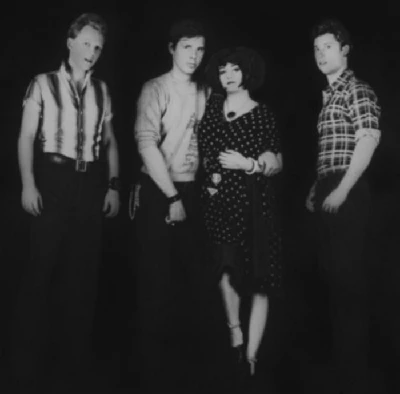
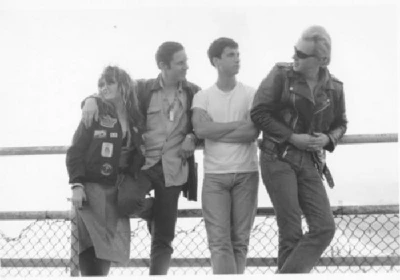
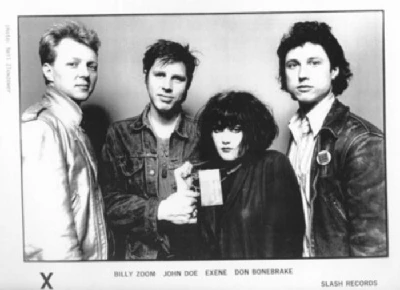
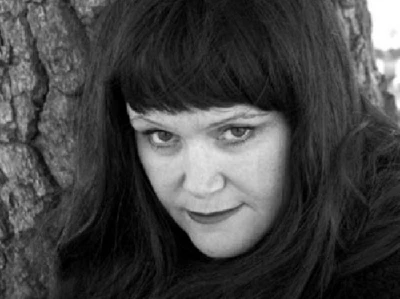
Visitor Comments:-
|
|
441 Posted By: Myshkin, London on 16 Jun 2011 |
Thanks for this article, Lisa. Admittedly I'm not too familiar with either X or Exene herself (only really her collaborations with Lydia Lunch), but found this really informative and interesting. A great piece and makes me want to go out and get her records.
|
|
440 Posted By: Myshkin, London on 16 Jun 2011 |
And how about a feature on Lydia Lunch anyway???
|